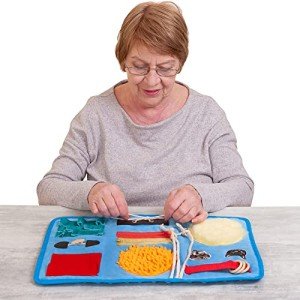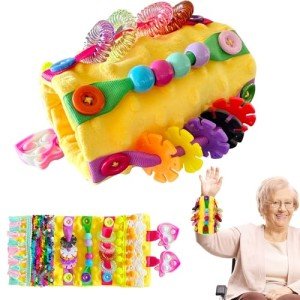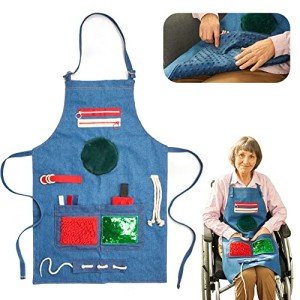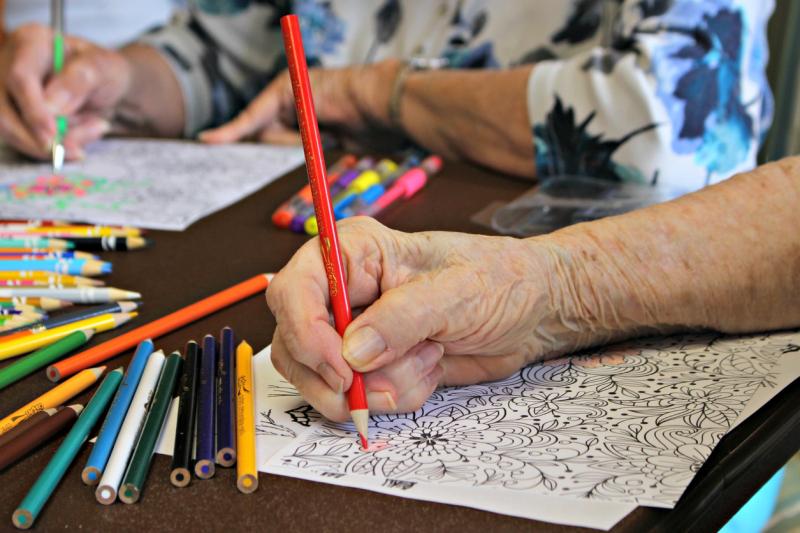Did you know...dementia is a term used to describe a range of conditions that affect a person's cognitive abilities, including memory, thinking, and communication skills. It's not a single disease but a general term that covers various forms, such as Alzheimer's disease, vascular dementia, and Lewy body dementia. Understanding dementia is crucial for caregivers and loved ones, as it can significantly impact daily life and relationships!
People with dementia may experience difficulties recognizing familiar faces, remembering important events, or following conversations. This cognitive decline can lead to frustration for both the person affected and their loved ones. It's essential to approach interactions with empathy and patience. Learning how to interact with dementia patients can make a considerable difference in their quality of life and help ease feelings of confusion and isolation.
Comprehensive Caregiving Guide for Dementia Support
Unlock the essential tools and strategies to provide compassionate and effective care for individuals with dementia
Product information
$19.95
Product links
In addition to cognitive changes, dementia can also affect a person's emotional well-being. Individuals may experience mood swings, anxiety, or depression, making it even more challenging for families and caregivers. Providing a supportive environment and maintaining open lines of communication are vital. Engaging in activities they enjoy and creating a routine can help reduce confusion and promote a sense of stability.
Supporting a loved one with dementia requires an understanding of their unique challenges and needs. Each person's experience with dementia is different, and caregivers should be flexible and willing to adapt their approach. By learning how to interact with dementia patients effectively, you can encourage a positive atmosphere and foster meaningful connections despite the barriers created by this condition.
Signs of Dementia
As we care for our loved ones, it's essential to recognize the early signs of dementia. Observing changes in behavior and memory can help us provide better support. Common signs include memory loss (particularly forgetting recent events) or repeating questions. If you notice that your loved one struggles to recall familiar names or faces, it might be time to seek professional advice.
Toolkit for Caregivers Book: Essential Skills and Tips
Empowering caregivers with valuable knowledge and practical resources for enhanced support
Product information
$27.99
Product links
Another signal to watch for is difficulty with problem-solving or planning. Your loved one might find it hard to manage tasks they used to handle easily, such as following a recipe or keeping track of monthly bills. These changes can be frustrating for both them and you, but understanding this symptom can offer insight into how to interact with dementia patients in a compassionate way.
Additionally, changes in mood and personality can be significant indicators of dementia. A person who was once outgoing may become withdrawn or anxious. They may also experience sudden outbursts of anger or confusion. Recognizing these emotional shifts allows caregivers to approach interactions with sensitivity, creating a safe space for their loved ones to express themselves.
Finally, look for signs of difficulty with daily activities, such as dressing, eating, or managing hygiene. If your loved one struggles with these tasks, it may indicate cognitive decline. Being aware of these symptoms is crucial.
365 Caregiving Tips Book for Providing Care in Hospitals, Hospice, Care Facilities
Practical Tips from Everyday Caregivers
Product information
$3.99
Product links
Effective Communication Techniques
It’s important to use simple language and short sentences, avoiding complex words or phrases. Speak slowly and clearly, allowing them ample time to process what you've said. If they still seem confused, rephrase your words instead of repeating them. This technique can provide clarity without overwhelm.
Additionally, focusing on non-verbal cues can enhance communication. Use gestures, facial expressions, and eye contact to convey emotion and understanding. A warm smile or a gentle touch can speak volumes. Remember that your body language can significantly influence how your loved one perceives your words, so being present and engaged is key.
Art and Science of Caregiving Book Inspiring Elders: Caregiving Stories and Guidebook
A heartfelt collection of real-life experiences and practical tips to support caregivers and enrich the lives of the elderly
Product information
$16.85
Product links
Finally, encourage reminiscing! Ask your loved one open-ended questions (a question that can't be answered with a simple "yes" or "no") about their past family memories. This technique not only helps them feel valued but also stimulates their mind. Discussing familiar topics may resullt in them responding more positively and engaging more readily, making it easier to interact with them effectively.
Creating a Supportive Environment
One aspect of a supportive environment is familiarity. Surround your loved one with familiar objects, photographs, and personal mementos that can evoke happy memories. This can anchor them in the present and help reduce feelings of disorientation. Maintaining a consistent routine can also be beneficial, as it provides a sense of stability that may be comforting to someone living with dementia.
It’s important to also consider the sensory aspects of their environment. Soft lighting, soothing colors, and minimal background noise can create a calming space. Be mindful of the furniture layout to ensure it is easy for them to navigate without obstacles that could cause confusion or falls. Incorporating elements such as plants or nature sounds can further enhance their mood and create a more inviting atmosphere.
Caregiver Self-Care: A Practical Guide
Nurture your well-being while providing the best care for others with this essential resource
Product information
$16.99 $15.80
Product links
Additionally, it's imperative to remember your loved one's reality may not be the same as yours. Depending on the level of dementia, they may see or hear things that you don't. Extremely important to note: because of their cognitive decline, they cannot come to your reality, you must go to theirs! This may mean acknowledging their (invisible to you) pet, or their fear of the person "following" them. Do not argue or try to change their mind, as this will only frustrate them further!
If your loved one's differing reality has them wanting to go to work or leave the premisis in any way, try distraction. Say something like "before you leave, let's go to your room and look for your big, warm coat...it's cold outside!" Getting them into a new space may be just enough for them to start concentrating on something else. You can help this along by pointing out a tv show, a pretty painting in their room, etc.
ALWAYS approach them with kindness and understanding. This can help foster trust and safety; key factors in dealing with dementia.
Click below to browse support products for dementia patients:












